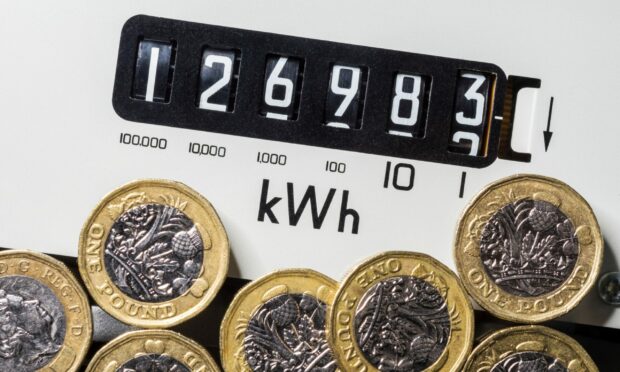A “watered-down” UK Government package of support for businesses worth an estimated £5.5 billion over 12 months was delivered with a warning that the tax payer’s largesse was not bottomless.
Chancellor Jeremy Hunt left it to Exchequer Secretary to the Treasury James Cartlidge to unveil the delayed energy bills discount scheme in parliament, in which the Government promised to help businesses with their energy bills for another year but significantly reduced the amount of support they will get.
The current scheme, which comes to an end in April, is set to cost the Government about £18 billion over just six months.
The new package, which extends further support for large-scale manufacturers will cost £5.5 billion over 12 months.
Mr Cartlidge estimated the funding would mean a typical pub can expect a discount up to £2,300 over the year, while a typical small retail store will get up to £400 off their annual energy bill.
The further allowance for energy and trade-intensive sectors means that a typical medium-sized manufacturer could expect receive £700,000 of direct support over 12 months.
However, business groups in the north and north-east of Scotland warned the cut in support would lead to business failures.
‘Survival at stake’ for Highlands and Islands businesses
The Federation of Small Businesses (FSB) Highlands and Islands development manager David Richardson said the cut in support “will cause a ripple of fear to spread throughout the Highlands and Islands’ small business community” because “the survival of many is at stake”.
He added: “Indeed, our evidence suggests that as many as one in six might close as a result of this announcement.
“Not only does the replacing of the price cap with a discount destroy the certainty that businesses crave, and confidence with it, but taking a mere two pence off a kWh of electricity and half a pence off gas – for those in this region fortunate enough to be able to access it – is totally insignificant for energy-hungry businesses like those in tourism and hospitality, manufacturing, food and drink processing, and so on.
“It’s a very worrying time indeed for the Highlands and Islands economy.”
Aberdeen and Grampian Chamber of Commerce policy director Ryan Crighton said the focus on support for larger companies was welcome but the scale of reduction was “reckless”.
Reckless and watered-down
He said: “While the enhanced support for manufacturers will be welcomed by the many energy-intensive businesses in the north-east, the breakneck speed at which this support is being scaled back for everyone else is reckless.
“We wanted to see clarity from government on the scale and duration of support to allow businesses to plan for the future. The only clarity this watered-down package will bring is the certainty of closure.
“For many battle-weary businesses, this simply is one blow too many.”
Delay in delivery
Mr Hunt had met with bosses at business groups including the Confederation for British Industry (CBI), Institute of Directors (IoD) and UKHospitality to discuss how to manage the end of the temporary support last week but had delayed announcing measures until later Monday night.
The FSB Scotland policy chair Andrew McRae wondered “whether today’s statement was really worth waiting for”.
He said: “Small businesses have been calling for some certainty on energy prices for months, but many will be forgiven for wondering whether today’s statement was really worth waiting for.
“This is a significant reduction in support – and it will have real-world impacts.
“Energy costs are still the single biggest challenge for many of our members, with six in ten reporting utilities as the main driver of cost increases.
“By switching the support from a cap to a discount on wholesale costs, businesses are once again at the mercy of the global events that drive those prices.”
More uncertainty not less
Under the new plans, non-domestic customers – which include businesses, charities and schools, among others – would get up to £6.97 taken off their energy bills for every megawatt hour (MWh) of gas they use.
Electricity bills will also be discounted by up to £19.61 per MWh.
Despite offering support for a year, Mr McRae said the package was flawed.
He said: “This creates more uncertainty. With a wholesale unit price cap, you can at least plan ahead. But with a mere discount on wholesale prices, many businesses will fear the next spike in energy costs and how high they might go. This will make it harder for firms to bid for fixed-price contracts, or to decide when, or if, they’ll open in the first half of the year.
“On top of the withdrawal of the vast majority of energy price support, this decision also risks stoking inflation through higher business bills. The original EBRS scheme suppressed inflation by 5 points, but this has been cancelled today – just as we enter a recession.”
Government should not subsidise business
However, the Tory MP for South Suffolk Mr Cartlidge was insistent that the cash was “deliberately transitional in nature”.
He added: “That means that in due course we will move unambiguously to a point where there is no universal support for businesses with energy bills from the taxpayer
“Because ultimately, Mr Deputy Speaker, it is in the national economic interest we move to a position where government does not routinely subsidise UK businesses
“It is not for the government to habitually pay the bills of businesses, anymore than it is for the government to tell businesses how to turn a profit.
“And it cannot be that the tax payer props up failing or unproductive firms. Instead, we must protect the forces of free enterprise and entrepreneurialism that have led to our economic success for generations.”




Conversation